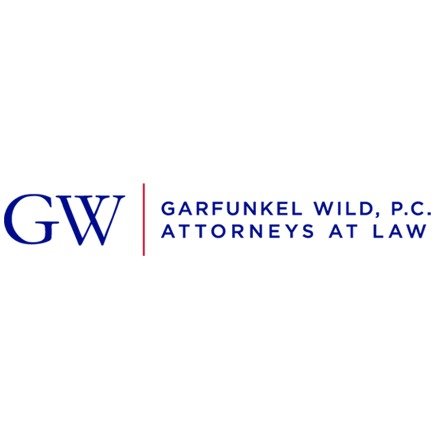Best Legal Document Lawyers in New York
Share your needs with us, get contacted by law firms.
Free. Takes 2 min.
Or refine your search by selecting a city:
List of the best lawyers in New York, United States
United States Legal Document Legal Questions answered by Lawyers
Browse our 2 legal questions about Legal Document in United States and read the lawyer answers, or ask your own questions for free.
- Confirming the authenticity of a divorce decree
- I'm married to a Nigerian, and I believe he provided a fake divorce decree, I need help to confirm this decree.
-
Lawyer answer by Nomos Legal Practice
Thank you and best regards, Kingsley Izimah, Esq. SK Solicitors
Read full answer - How do I legally protect my idea before selling or licensing it to a company?
- I have a makeup product idea that I want to sell or license, not the product itself. It is influenced by a product that was recently launched. Therefore, I want to sell/license to the company that launched said product. After some research, I contacted a patent attorney who explained that... Read more →
-
Lawyer answer by P.O OHIKHENA & Co
Good day,A patent will not be applicable since it's still an idea. You can go into an MOU(Memorandum of understanding) with the said company and also an NDA.You can contact me for my insight. Visit our profile and send us...
Read full answer
About Legal Document Law in New York, United States
Legal document law in New York refers to the rules and regulations governing the preparation, execution, storage, and filing of legal documents used in various personal, business, and government contexts. These documents can include contracts, agreements, deeds, powers of attorney, wills, affidavits, court filings, and more. In New York, the validity and enforceability of these documents depend on compliance with state statutes, local regulations, and sometimes federal law. Understanding legal requirements is crucial to avoid disputes, ensure enforceability, and protect one's legal rights.
Why You May Need a Lawyer
People may require legal help regarding legal documents for several reasons. Common situations include:
- Drafting or reviewing contracts for business, employment, or real estate transactions
- Creating a will, trust, or other estate planning documents to ensure proper asset distribution
- Filing court documents for civil lawsuits, divorces, name changes, or other legal actions
- Notarizing documents or ensuring documents are properly signed and witnessed
- Addressing errors, ambiguities, or fraud in existing legal documents
- Defending or asserting your rights in disputes based on written agreements
- Ensuring compliance with local and state-specific legal requirements
- Assisting with translation or interpretation for documents in another language
A lawyer can help ensure documents are accurately prepared, legally compliant, and best suited to protect your interests.
Local Laws Overview
New York law has unique requirements regarding legal documents. Some key points include:
- Many documents, such as wills and powers of attorney, require specific language, formatting, and signing procedures
- Certain documents must be notarized or witnessed by designated parties for legal validity
- Real estate documents must often be filed with the appropriate county office for recording
- Electronic signatures and electronic records are generally recognized under New York law, but exceptions exist
- There are statutes of limitations for challenging or contesting documents in court
- Notaries, attorneys, and some public officials are authorized to acknowledge legal documents
- Confidentiality and privacy laws may impact the storage and sharing of sensitive legal documents
Failure to adhere to local requirements can result in invalidation, rejection, or costly legal disputes.
Frequently Asked Questions
What makes a legal document valid in New York?
It must comply with required formatting, signing, notarization, and witnessing standards as set by state law for the specific type of document.
Do legal documents need to be notarized?
Not all documents require notarization, but many, such as deeds, powers of attorney, and certain affidavits, do require a notary’s acknowledgment.
Can I use an electronic signature on legal documents in New York?
Electronic signatures are generally acceptable under the New York State Electronic Signatures and Records Act, except where a handwritten signature is expressly required.
How can I contest a legal document in New York?
You can challenge a document in court, often on grounds such as fraud, duress, incapacity, or failure to meet legal requirements. An attorney can guide you through the process.
Who can act as a witness to a legal document?
Witness requirements vary by document type, but typically any adult who is not a party to the document may serve as a witness, unless specified otherwise by law.
Where should I store important legal documents?
Store them in a safe, secure location such as a safe deposit box, with copies provided to your attorney or trusted individual. Some documents should be filed with government offices.
What happens if I lose an original legal document?
Depending on the document, you may need to obtain a certified copy, execute a new document, or seek court intervention. Legal guidance is often recommended in such cases.
Can I write my own legal documents?
While you can draft your own documents, mistakes or omissions may render them unenforceable. Professional legal advice ensures validity and protection of your interests.
Are legal documents from other states valid in New York?
Documents validly executed in other states are often recognized in New York, but they may need to meet New York’s specific requirements if used locally or filed with state agencies.
How long are legal documents valid in New York?
Most remain valid until revoked, superseded, or expired as specified in the document. Consult a lawyer for documents with time-sensitive terms or requirements.
Additional Resources
If you need more information or assistance, consider these resources:
- New York State Unified Court System - Guidance on court forms and filing procedures
- New York State Bar Association - Lawyer referral services and consumer information
- New York Department of State - Notary public resources and licensing information
- Legal Aid Society - Free or low-cost legal help for eligible individuals
- Local county clerk’s offices - Document recording and retrieval services
Next Steps
If you believe you need legal assistance regarding a legal document in New York, start by:
- Gathering all relevant documents and information
- Making a list of your questions or concerns
- Researching reputable local attorneys with experience in your area of need
- Scheduling a consultation with a qualified lawyer
- Bringing your materials to the meeting for review
- Following your attorney’s recommendations and taking necessary follow-up actions
Do not delay seeking help if you are facing deadlines, significant transactions, or legal disputes. Early legal guidance can prevent costly mistakes and protect your interests.
Lawzana helps you find the best lawyers and law firms in New York through a curated and pre-screened list of qualified legal professionals. Our platform offers rankings and detailed profiles of attorneys and law firms, allowing you to compare based on practice areas, including Legal Document, experience, and client feedback.
Each profile includes a description of the firm's areas of practice, client reviews, team members and partners, year of establishment, spoken languages, office locations, contact information, social media presence, and any published articles or resources. Most firms on our platform speak English and are experienced in both local and international legal matters.
Get a quote from top-rated law firms in New York, United States — quickly, securely, and without unnecessary hassle.
Disclaimer:
The information provided on this page is for general informational purposes only and does not constitute legal advice. While we strive to ensure the accuracy and relevance of the content, legal information may change over time, and interpretations of the law can vary. You should always consult with a qualified legal professional for advice specific to your situation.
We disclaim all liability for actions taken or not taken based on the content of this page. If you believe any information is incorrect or outdated, please contact us, and we will review and update it where appropriate.
Browse legal document law firms by city in New York
Refine your search by selecting a city.
















